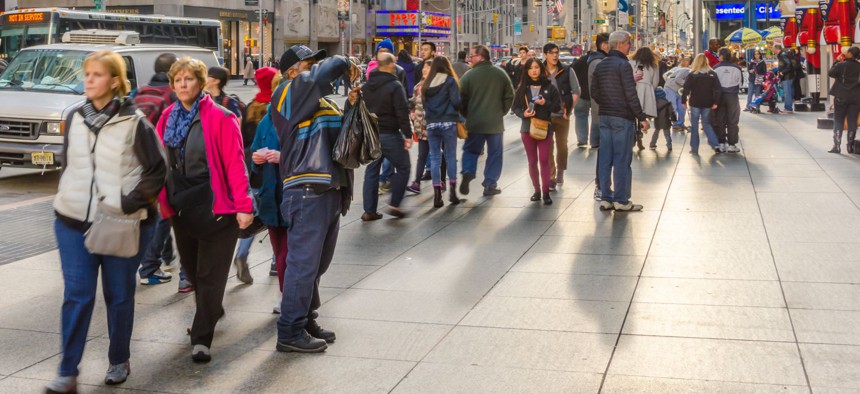‘Cities Are Not Smart. It’s People Who Are Smart’

Shutterstock
At an event in the nation’s capital, experts discussed issues related to smart cities such as inclusivity, data management and cybersecurity.
WASHINGTON — As he offered a definition for what makes a “smart city,” Azer Bestavros didn’t mention some of the hotter technologies the term might bring to mind, like predictive analytics software, aerial drones, infrastructure sensors and self-driving cars.
Instead he emphasized the role humans will have in shaping the next generation of American metropolises. “My definition of a smart city is a programmable, open platform,” the Boston University computer science professor said at an event here on Thursday. “Cities are not smart. It’s people who are smart. And people can put their smarts into programs.”
Bestavros spoke during a panel discussion focused on smart cities, hosted by Boston University and the Information Technology and Innovation Foundation, a nonprofit think tank.
Other panelists included Daniel Castro, who is the foundation’s vice president, and Lauren Lockwood, chief digital officer for the city of Boston. The moderator was Elizabeth Grossman, director of civic projects for the technology and civic engagement group at Microsoft Corp.
Some of the key topics that emerged during the talk had less to do with hardware and software and more to do with people, partnerships and how information gets managed and shared.
“It’s extremely important that whenever you’re building anything you’re designing with inclusivity in mind,” said Lockwood. “Accessibility is not something you can think of at the end.”
This might mean taking into account how people who are disabled, speak English as a second language, or have limited internet access will interact with new city technology.
Gathering input from a range of potential users can require stepping outside city hall. “There’s a huge challenge, which is just getting out of the building and making sure that you’re going to where people are, to make sure that you’re incorporating their opinions,” Lockwood said.
Lockwood also highlighted a partnership Boston forged to get data from Waze, a mobile application that allows people to share information about road and traffic conditions in real time. Thousands of people in the city use the app regularly, she said, offering a wealth of information.
For instance, knowing how long it takes drivers to get between two points gives the city a possible way to measure the effect on traffic when a bus line is given green light priority at an intersection.
“There are a lot of networks that already exist that we should be tapping into,” Lockwood said as she discussed the Waze partnership. “We can make the city smarter without ripping up roads and putting in expensive sensors,” she added.
When data is shared between private companies and government, and even between public agencies, sticking points can arise related to privacy and cybersecurity.
But Bestavros stressed that there are typically ways to work around these sensitivities.
“You can do privacy-preserving analytics,” he said.
For some local governments just getting data into a usable format can prove to be difficult.
“People think about the promise of things like predictive analytics,” said Lockwood. “But at a very base level a lot of open data is not very accessible.” As an example, she described confusing spreadsheet column headers that consist of “gibberish” and acronyms.
According to Castro, going forward, “one of the biggest challenges for city agencies will be, basically, changing their orientation so that it’s outward looking.”
In some cases, this may involve considering what’s happening beyond the city limits.
“We need to talk about being able to make comparisons across cities,” Castro said. “One of the problems right now in the smart city development space is that while cities are sharing some solutions, they’re not really sharing performance metrics…That’s not an easy problem to solve.”
Bestavros voiced strong support for making computer source code available to the public. While some people see this “open source” approach to technology development as a security liability, he believes the benefits outweigh the risks.
“Open source is the absolute most important thing for security,” he said. This, Bestavros said, is because it can get many people looking at computer code and identifying potential flaws.
In Boston on Thursday, Mayor Martin J. Walsh announced the city would publicly release the source code for its city website.
The stakes with the smart city movement are significant, from Castro’s perspective.
“We’re seeing an inflection point,” he said.
Castro cautioned that cities could get left behind in the way towns were bypassed by interstates and railroads. There’s a similar dynamic, he said, “I think we’re going to see play out in the future with cities here with digital infrastructure.”
Bill Lucia is a Reporter for Government Executive's Route Fifty and is based in Washington, D.C.
NEXT STORY: Newly Redesigned Boston.gov Just Went Open Source






